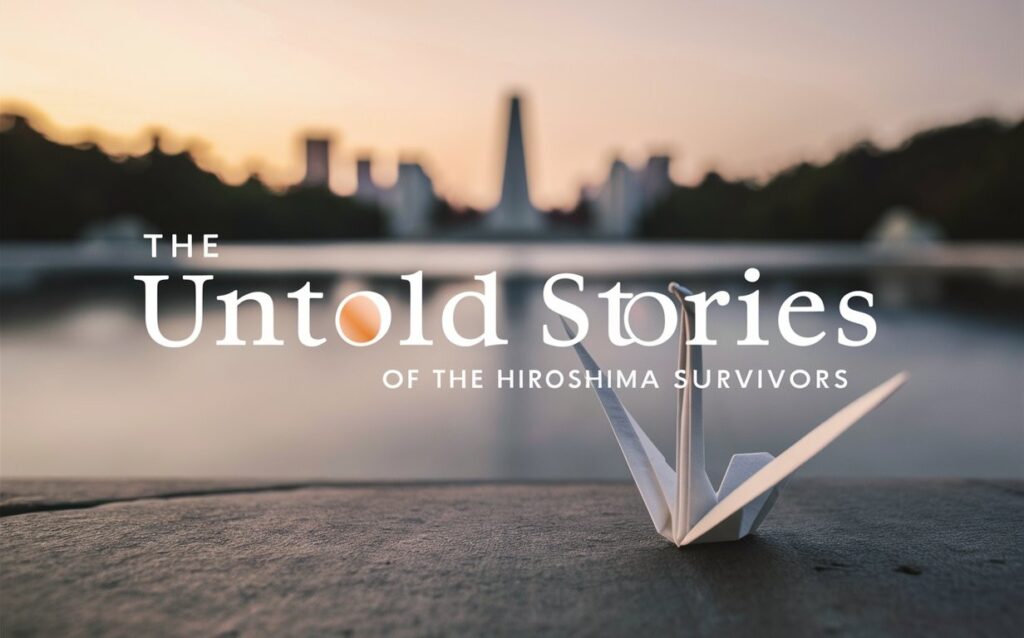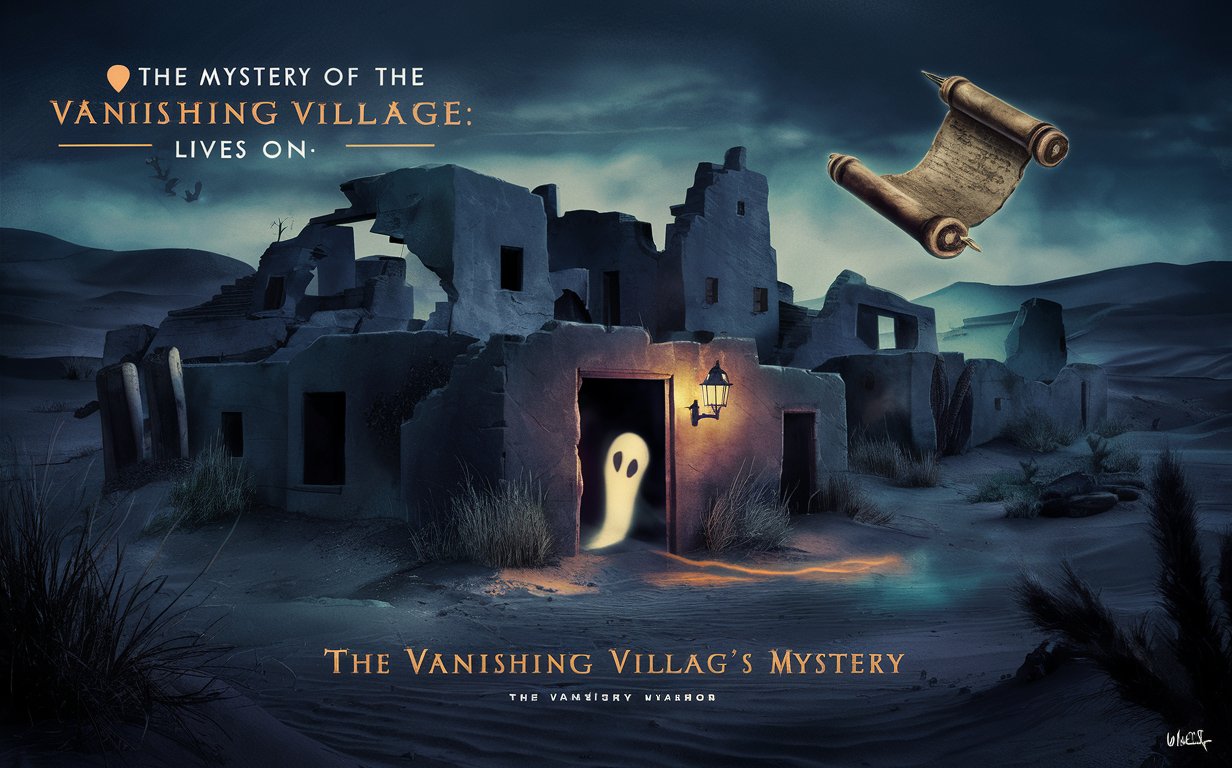The Untold Stories of the Hiroshima Survivors

On August 6, 1945, the world witnessed one of the most devastating and transformative events in history: the atomic bombing of Hiroshima, Japan, during World War II. The bomb, codenamed Little Boy, unleashed unprecedented destruction, leveling much of the city and causing an immediate death toll in the tens of thousands. But it wasn’t just the blast that claimed lives—those who survived the explosion faced a lifetime of suffering from radiation sickness, physical trauma, and the psychological scars of their ordeal.
While the narrative surrounding the bombing of Hiroshima is often focused on the broader political and military implications of the event, the untold stories of the survivors—often referred to as Hibakusha (meaning “explosion-affected people”)—offer a deeply human perspective on the devastation and its lasting consequences. This article seeks to shine a light on the personal, often heart-wrenching stories of Hiroshima survivors—stories of courage, survival, loss, and resilience that have shaped their lives and the world’s understanding of the atomic age.
The Day of the Bombing: Personal Accounts of Survival
The bombing of Hiroshima is often recounted as a singular event—one moment of catastrophe. But for the survivors, the day itself was a blur of fire, light, and heat, with each survivor experiencing it in their own way.
The Lasting Echo of the Explosion
For many Hibakusha, the first memory they have of the bombing was the blinding flash of light, followed by an intense shockwave that would shake the ground and crush buildings. Some survivors recall being thrown to the ground by the force of the blast, others by the deafening sound of the explosion. In many cases, the blast was so powerful that survivors were rendered unconscious or trapped beneath the rubble of collapsed buildings.
One survivor, Keiko, remembers how she was just 2 kilometers from the hypocenter (the point of detonation) when the bomb exploded. “I was knocked out instantly,” she said in an interview years later. “When I woke up, everything around me was burning. There were no sounds, no voices—just the crackling of fire.” Keiko, like many others, would go on to suffer severe burns, radiation sickness, and years of physical and emotional trauma, but the immediate horror of that moment would remain vivid in her mind for the rest of her life.
Survivors in the Immediate Aftermath
The hours and days after the bombing were chaotic and disorienting. Many survivors initially didn’t understand what had happened to them, as the blast and heat were so unlike anything they had ever experienced. The survivors’ immediate concern was for loved ones, as entire neighborhoods had been wiped out, and families were separated in the confusion.
One poignant story comes from a survivor named Kiyoshi, who had been working at a factory on the outskirts of the city. When the bomb dropped, he was thrown across the room by the blast. Despite suffering burns and injuries, Kiyoshi was determined to find his wife and children. As he staggered through the ruins of the city, he came across hundreds of injured and dying civilians. Many were calling out for help, but there was little he could do. Kiyoshi would later find his family, but they were all severely injured. It would take months for them to recover physically, but the psychological scars would last much longer.
The Struggle for Survival: Radiation and the Hidden Dangers
While the blast and firestorms of Hiroshima claimed tens of thousands of lives, it was the lingering effects of radiation that would continue to haunt the survivors. Radiation sickness, which often took days or even weeks to manifest, was a cruel and invisible aftermath of the bomb. Many Hibakusha initially thought their injuries would heal, only to experience rapid deterioration and symptoms like vomiting, hair loss, fever, and internal bleeding.
Long-Term Effects of Radiation Exposure
One of the most devastating aspects of radiation exposure was the delayed onset of illness. Many survivors, including children, experienced various forms of cancer, particularly leukemia, which was linked to the radiation from the bomb. In fact, survivors in the years following the attack faced an increased risk of developing cancers, cardiovascular diseases, and other health problems. Some survivors lived for decades with the knowledge that the effects of radiation had permanently altered their bodies.
Yoko, a young girl at the time of the bombing, recalls how she witnessed her mother fall ill shortly after the attack. “She started to get sick, and we didn’t know why,” Yoko said. “We thought it was just from the burns, but then she began coughing up blood and became very weak. It wasn’t until years later that we realized it was the radiation that had poisoned her body.”
Yoko’s mother would die of cancer several years later, one of many Hiroshima survivors who suffered prolonged, painful deaths as a result of radiation exposure.
The Silent Suffering of Children
One of the most heartbreaking aspects of the bombing of Hiroshima was the impact on children. Many were caught in the blast while attending school or playing in the streets. The psychological toll on these children was profound, as they witnessed the devastation and loss of life at a young age. For some, the trauma would shape their entire lives, leading to lifelong struggles with depression, anxiety, and survivor’s guilt.
Reiko, a survivor who was a teenager when the bomb was dropped, recalls running toward the river in the aftermath, thinking that the water might offer some relief from the heat and the fire. “I remember seeing children with their skin hanging off their bodies, crying for help. But no one could help them,” she said. “We were all so scared, and I think that fear stayed with me forever.”
The Long Road to Healing: The Burden of Being a Hibakusha
The psychological toll of surviving such an unimaginable catastrophe cannot be overstated. For many Hibakusha, the trauma they endured wasn’t just physical—it was emotional, psychological, and cultural. In post-war Japan, survivors were often stigmatized. Many people believed that those who survived the bomb had done so because of some moral failing, or that they had somehow “earned” their fate. This social stigma was particularly strong in the early years after the bombing, when the survivors faced discrimination in employment, marriage, and public life.
The Stigma and Isolation
Hibakusha often struggled to speak about their experiences, as many felt that their suffering was misunderstood or minimized. In the years after the bombing, they found themselves isolated from their communities, and some even faced discrimination from their own families. The physical scars of the survivors were often visible—burns, disfigurements, and hair loss—but the invisible scars of trauma and PTSD were harder for others to understand.
Takeshi, a man who was in his early 30s at the time of the bombing, recalls how he was ostracized by his neighbors after he returned to his village. “They didn’t want to be around me because they thought I might be contagious, or that the radiation could harm them,” he said. “It was a terrible feeling to be treated like a pariah in my own community.”
In recent years, the Hibakusha have found some solace in telling their stories, particularly as Japan and the world have come to recognize the human toll of nuclear warfare. Many survivors, including those who have suffered from cancer and other long-term effects of radiation, have worked to ensure that the horrors they endured are not forgotten. They have spoken out against nuclear weapons and have advocated for a world free from the threat of atomic warfare.
The Legacy of Hiroshima: A Call for Peace and Remembrance
Today, the survivors of Hiroshima are not just witnesses to history—they are advocates for peace and nuclear disarmament. The Hiroshima Peace Memorial Park, built in the heart of the city, stands as a symbol of resilience and hope. The stories of Hibakusha, often told in museums and memorials, continue to inspire global efforts to prevent the horrors of nuclear war from ever happening again.
As the number of surviving Hibakusha dwindles with the passage of time, their untold stories remain a powerful reminder of the human cost of war and the enduring need for peace. The survivors of Hiroshima, in their courage and resilience, have ensured that the lessons of the atomic bomb will not be forgotten—lessons that resonate not just in Japan, but throughout the world.
Theirs is a legacy of survival, but also a call to humanity to never repeat the mistakes of the past.



Post Comment